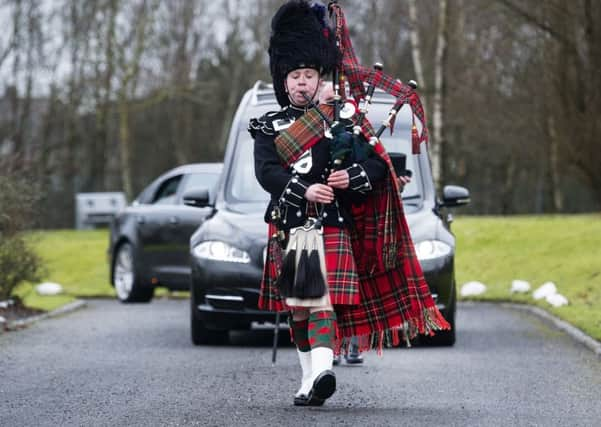Charity urges more discussion around end-of-life '˜taboo'


Marie Curie said they had been in discussions around the issue, but there was no section on end of life in the vision for Scotland’s health document released last week. The charity are pushing for a “cultural shift” around discussions about dying, which they say is still being treated as a taboo subject.
The Scottish Government and Cosla jointly published public health priorities for Scotland, aimed at focusing action across the public and voluntary sector. The priorities include physical and mental health, plans covering tobacco, diet, substance abuse and alcohol, but make no mention of dying, death and bereavement.
Advertisement
Hide AdAdvertisement
Hide AdSusan Lowes, Marie Curie policy and public affairs manager for Scotland, said this was a “lost opportunity”.
She said: “We’re really disappointed that they didn’t take the opportunity to address some of the negative culture, stigma and the avoidance of people talking about dying, death and bereavement.
“It’s actually a really large issue that’s never discussed and there’s definitely a taboo around it.
“Dying is a natural part of life, we’re all going to do it and if you don’t die well or have a good experience, then obviously that is bad for the person dying, but has far-reaching effects for the people who are left behind and those who are expected to care for people.
“It makes a real difference to people’s lives whether they have a good experience of death, but it’s often forgotten from documents like this and in Scotland there’s actually a real problem with dying, death and bereavement.
“We’ve been speaking to the Scottish Government saying that we need more public openness about dying and death. We also need more public awareness and acceptance because often death is seen as a failure of the health and social care systems and people die.”
Ms Lowes said the language used around terminally ill people often describing their plight in terms of a “battle” or “fight” was unhelpful, as ultimately the person would die and could end up feeling pressured to receive treatment in hospital that ultimately would be of no benefit to them.
Scotland’s chief medical officer Catherine Calderwood spoke about end-of-life care while addressing palliative care professionals at a Marie Curie event in September last year. She said: “My untold story is that very often I hear from families after the event who say, ‘I wish we hadn’t gone down that treatment route’.”
Advertisement
Hide AdAdvertisement
Hide AdMs Lowes added: “People always talk about fighting language and the battle to survive and for Marie Curie that really ties in as part of the ‘realistic medicine’ agenda. With Dr Catherine Calderwood, that leads to people having treatment that they don’t necessarily want or need. It’s because of this perception that you get treatments that aren’t tailored for the patients. They aren’t patient-centred and you see people going into hospital unnecessarily and dying in hospital.”
Miles Briggs, Scottish Conservative health spokesman, said: “If palliative care is not considered a priority for the Scottish Government, then the necessary changes will not be made. It’s really disappointing that the… document does not include dying, death and bereavement.”